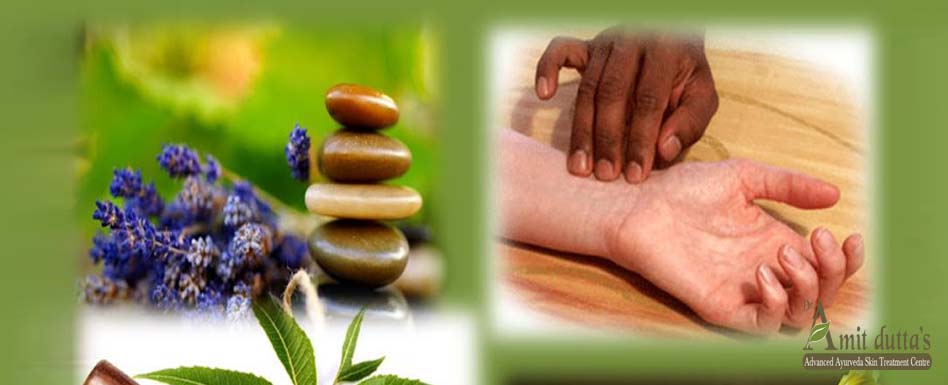Diagnosis in Ayurveda
- Ayurvedic Constitions: Diagnostic Stages
- Diagnosis Ayurveda: Tri Bidha Pariksha
- Diagnosis Ayurveda: Ashtwidh Pariksha
- Diagnosis Ayurveda: Das Widha Pariksha
Diagnosis in Ayurveda
Disease is a state of disturbed equilibrium of the doshas, dhatus, agnis and malas. According to Ayurveda all human diseases can be classified into the seven broad categories, namely :
1. Genetic (Adibalapravritta)
The defects in the sperm (sukra) of father or ovum (sonita) of the mother causes genetic problems . When the problem is caused due to the defect in the sperm of father it is known as pitrija and when caused by the defect in ovum it is known as matrija. The defects further leads to various skin diseases, diabetes, asthma, tuberculosis and hemorrhoids.
Undigested food, abnormal behaviour, addiction of any type and stressful situations affect the reproductive elements of both the male and female, resulting in a defective foetus.
2. Congenital (Janmabalapravritta)
• The unfulfilled desires of the mother during pregnancy (dauhrdya) and nutritional disorder (rasakrita) of mother usually result in janmabalapravritta.
If during pregnancy the vata dosha becomes imbalanced, the fetus might suffer from various deformities like kyphosis (hunchback), blindness and dwarfism. The increased pitta might cause alopecia and yellowish pigmentation of skin and aggravated kapha might cause albinism.
3. Constitutional (Doshabalapravritta)
• Arise out of any dietary or behavioural disturbance brought about by an imbalance in any one of the three vital physical energies (Tridoshas) or the three vital mental energies (Trigunas).
• Thus constitutional disorders are of two types : somatic (Sharirika) & psychic (Manasika).
4. Traumatic (Sanghatabalapravritta)
• Any trauma causing internal or external experience results in traumatic disease. External trauma is induced by injuries inflicted by sharp instruments and bites of animals or venomous insects.
• Stress, overstrain and hard work leads to internal trauma.
5. Seasonal (Klabalapravritta)
• Sometimes the body fails to adjust itself to the sudden and abnormal climatic changes – extreme cold might lead to frostbite and rheumatic disease. While extreme heat may cause sunstroke or fever.
6. Infectious and Spiritual (Daivabalapravritta)
These infectious and spiritual diseases can also be contacted through sexual & physical closeness and sharing of food, plates, bed, clothes, towels, cosmetics and other items of private usage with affected persons. These diseases can also be a result of jealousy and negative thoughts occupying ones mind.
These are caused due to various natural calamities like earthquakes, lightening, floods and the invisible, malevolent forces of the nature.
7. Natural (Swabhavbalapravritta)
This is usually caused by functional, organic and natural changes in the body. According to Ayurveda even the healthiest person suffers from natural weakness and diseases like hunger, thirst, sleep, death and weakness with the age.
In Ayurveda, physicians try to assess the symptoms of these diseases as much as the nature of ailment and its root causes (nidana). This is of utmost importance in ensuring correct choice of remedial & preventive measures for treatment of the disease. For otherwise, even after therapy, one might not get the desired response and there would remain a chance of recurrence.
The early signs and symptoms (purvaroopa) provide useful warnings and the opportunity for taking necessary action before a disease can assume dangerous magnitudes. The main signs and symptoms (roopa)reflect the true nature and intensity of the disease. Another oft used method of diagnosis is exploratory therapy(upasaya) which uses diet, medicines and routines to detect diseases otherwise difficult to diagnose. Acting either against the cause of disease or the disease itself or producing relief. For example a swelling tha

